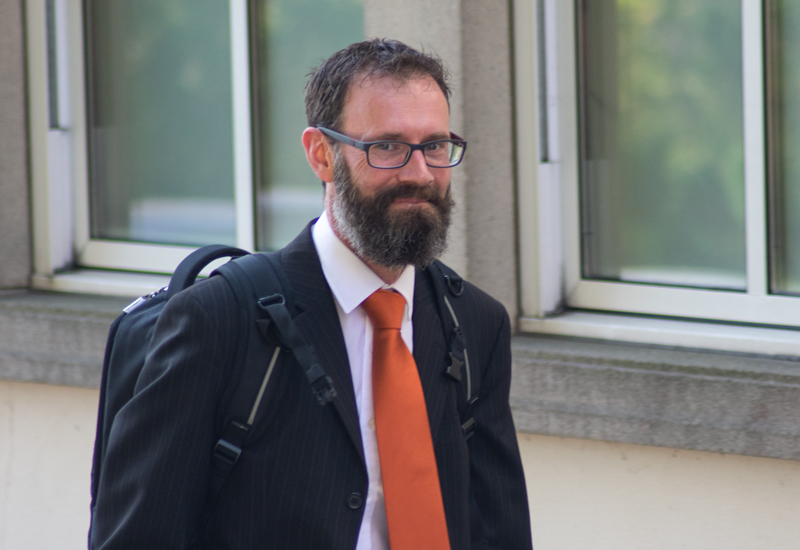


The body representing Channel Island cannabis firms has criticised what it sees as contradictory and ill-informed positions being taken by Guernsey States members, calling for full legalisation of the drug “to go some way towards achieving their stated aims of reducing costs and increasing revenues”.
Paul Smith, Chair of the Channel Islands Cannabis Industry Association, and CEO of The House of Green, sent a letter to all deputies last week saying the time had come to “bust some myths and put the record straight”.
It comes after Express reported States committees not proposing any new non-punitive measures for low-level drug possession cases after a multi-year investigation, and the comparatively high resource requirements for policing cannabis compared to other controlled substances.
“It is now the time for the States to stop prevaricating and address cannabis legalisation as a matter of priority both in order to serve the people that they purport to represent,” Mr Smith said.
And now a deputy who sat on the work group looking into non-punitive approaches for low-level possession cases has now said the scope of that review was too limited and queried whether a broader look into drug policy is warranted.
Other politicians have also since criticised the continued criminalisation of the drug and those who are caught with small amounts of it, with a former Chief Minister saying dwindling public resources should not be allocated to hunting down cannabis products such as gummies.

Pictured: The States will not carry out of a review of the legal status of cannabis before 2025, with no guarantee it will be undertaken by the next set of deputies.
Deputy Rob Prow, President of Home Affairs, said a response he provided to Express last week via the States’ communications team should’ve referred to non-custodial rather than non-punitive sentences.
Deputy Marc Leadbeater is a director of cannabis company The House of Green, and he also resigned from Home Affairs a few years ago due to his divergent views on cannabis to that of the rest of the committee.
He raised the issue in the States Assembly last week, asking Deputy Prow: “Does he and the rest of his Committee for Home Affairs sincerely believe that large fines, lengthy community disposals, and lifelong criminal records constitute non-punitive approaches?”
“I think the remarks that I have made to the media are talking about custodial sentences… I completely take [Deputy Leadbeater’s] point that heavy fines or community service disposals are punitive,” Deputy Prow said in response.
The statement provided to Express read: “The group found that people whose only offence before the court was the possession of a small amount of illegal drugs were not experiencing custodial outcomes… it therefore established that non-punitive approaches are already available."
It also noted that Home Affairs view that sentences may not be being applied consistently or appropriately by the courts.

Pictured: Deputy Aidan Matthews sat on the group looking into non-punitive measures for drug possession.
Deputy Aidan Matthews, who sat on that work group with Home Affairs as a member of Health, followed up that response by saying the review was “just far too limited in scope”.
“It was just looking at possession offences and small quantities. And the results of it, when they were presented, [HSC] felt that they were not results that they felt were particularly useful because of that very limited scope.” He asked Deputy Prow if he felt a wider review would therefore be beneficial.
The group came about from a successful motion submitted by a deputy in the previous States, which is why it could be perceived as being limited in scope, Deputy Prow replied. Nevertheless, he said Home Affairs “does believe more work is needed” and officers have been tasked to investigate.
But he warned that it’s uncertain when this will be discussed in committee due to competing work commitments.
Given worldwide policy developments reevaluating risk of harm from cannabis (compared to other legal and illegal drugs,) personally, I don’t regard it as a good use of limited resources to be hunting down cannabis gummies. We need to develop our policy response to a changed world https://t.co/F8teNSKdok
— Gavin St Pier (@gavinstpier) July 21, 2023
In his letter published shortly after the end of that States meeting, Mr Smith said the fact Home Affairs regard drug sentencing as not being applied consistently by the island’s courts “makes a mockery of the judicial system".
“There is obviously no clear policy from Home Affairs on this subject apart from their determination to halt cannabis reform at any cost whilst hiding behind a smokescreen of misinformation and confusion.
“If an individual is currently found guilty of possession of cannabis, they will still receive a criminal conviction, which will have a detrimental impact on future career or visa applications.
“A well regulated and monitored cannabis industry in Guernsey could reduce States’ expenditure and generate additional tax revenue. The focus of the Committee for Home Affairs and their allies within the States is to prevent cannabis being accepted as a legitimate alternative to a broad range of pharmaceutical drugs as well as being an acceptable alternative to the hugely damaging drug, alcohol.”
Mr Smith said it’s difficult to know how many people are being prescribed cannabis in Guernsey since it’s not recorded by government but estimated there are around 1,600 regular users.
He also estimated the value of the illegal cannabis market to be between £5m and £10m, far higher than the “tip of the iceberg” value seized by the Guernsey Border Agency last year of around £557,307.
“Both the Committee for Home Affairs and Bailiwick Law Enforcement readily, and almost gladly (because no doubt there is a budgetary allocation in their accounts to fight it), admit that there is an illegal cannabis market in Guernsey. No matter what they do, they will not be able to entirely eradicate it. All they can do is devote yet more resources and expend yet more taxpayers’ money in a vain attempt to reduce it,” Mr Smith said.
He concluded that a legal cannabis regime in the Bailiwick would make the illegal market “fall away” and would have wider societal benefits including reduced harm, costs, and crime, improved choice for patients, and a tax-take for the States.
Drugs laws under review - but legalisation is off the agenda
Jump in value of cannabis seizures last year
Comments
Comments on this story express the views of the commentator only, not Bailiwick Publishing. We are unable to guarantee the accuracy of any of those comments.